
Google's fifth "Transparency Report" shows that the emperors of the world wear no clothes. The search and information giant started releasing the data two years ago, offering a small peek into the bombardment of user information requests that world governments make -- everything from non-copyrighted YouTube video take-downs, to search result link removals, to, most alarmingly, private citizen emails and information.
But what is most alarming about these requests? Many are not even for serious matters of national security. Most are down right requests to silence, censor, track, and or monitor dissident internal political groups and political opponents. In some, it is the outright censorship of non-violent organizations, ideas, or even the requested silence of whistle-blowers pointing out corruption. Google's own policy analyst, Dorothy Chou, sees a disturbing trending rise, particularly from "Western democracies not typically associated with censorship".
Google, Take Down This Post
Google states at the top of its 'Content Removal' by country government chart just some of the basic reasons for the content take downs by governments:
Content removals are requested due to allegations of defamation, while others are due to allegations that the content violates local laws prohibiting hate speech or pornography. Laws surrounding these issues vary by country, and the requests reflect the legal context of a given jurisdiction
An example of local country law violations that lead to reasonable requests for removal is that of Germany, ranked second in the list. German courts had 60 requests for 1304 items, while the German government had 43 requests for 418 items. Google's self-reported compliance with the requests was at 80 percent for the court orders and 72 percent for the direct government requests.
The majority of these requests were brought by the Federal Department for Media Harmful to Young Persons (BPjM - Bundesprüfstelle für jugendgefährdende Medien), a federal government youth protection agency in Germany. The requests were for the removal of some 70 videos on YouTube and lists of urls that have content that violates the German youth protection law which blocks content touting Nazi memorabilia, extreme violence or explicit pornography material that children can easily access. Google responded by removing the urls from Google.de and limited the videos playback from inside of Germany. Google uses its own discretion in requests, not entirely removing possible valid items from the entire search index.
Another example of local country rules is Thailand. All of the requests came from the Ministry of Information, Communication and Technology -- to remove 149 YouTube videos for allegedly insulting the monarchy in violation of Thailand's lèse-majesté law. There was 100-percent Google compliance reporting for four requests. Google responded with the discretion by restricting 70 percent of these videos from viewing in Thailand.
But as a US citizen I find it most shocking that the United States collective State & Federal governments ranked No.1 in the top 10 for 'Content Removal' requests by both court order and by government agency request. Under court orders the US Government requested 117 times to remove 3851 items and under Government agency requests; ranging from Executive branch down to local police, there were 70 requests for 2341 items. In the court-ordered take-down requests, Google's self-reported compliance level was 40 percent. In the government agency requests that was slightly higher at 44 percent removal compliance. But the real question is what kind of data is the US requesting to take down?
Google's own summery states:
We received a request from a local law enforcement agency to remove a blog because of a post that allegedly defamed a law enforcement official in a personal capacity. We did not comply with this request, which we have categorized in this report as a defamation request.
We received a request from a local law enforcement agency to remove 1,400 YouTube videos for alleged harassment. We did not comply with this request. Separately, we received a request from a different local law enforcement agency to remove five user accounts that allegedly contained threatening and/or harassing content. We terminated four of the accounts, which resulted in the removal of approximately 300 videos, but did not remove the remaining account with 54 videos.
We received a court order to remove 218 search results that linked to allegedly defamatory websites. We removed 25 percent of the results cited in the request.
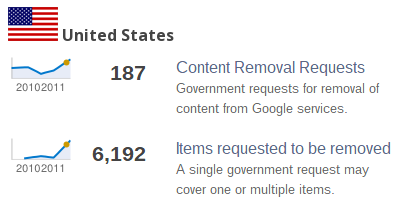 Mr. Googler, Papers Please?
Mr. Googler, Papers Please?
The worst thing though is that the United States leads in the request of personal user data. The rise between 2009 and 2011 is astounding:
- In Google's 2009 July to December dataset, the United states made 3,580 requests for an undisclosed number of US citizens' user data.
- In 2010 January to July that jumped to another 4,287 requests for an undisclosed number of US Citizens' data.
- In 2010 July to December it was another 4,601 requests for an undisclosed number users' data but with Google reporting the percentage of data requests fully or partially complied for the requests to be 94 percent.
- 2011 January to June marks the first time we get a number of users accounts specified, with the United States making 5,950 requests for 11,057 individual users/accounts private information with a 93 percent full/partial fulfillment by Google.
- This last dataset for 2011 July to December now sees United States hit a high score of 6,321 requests for 12,243 accounts with Google agreeing fully or only partially to 98 percent.
To put this into context of all the other recorded countries on the list. The United States has been No. 1 since Google started the transparency reports. No country is even close to competing with the number of private user data requests. In the combined datasets of 2011 the United States requested access to a total of 23,300 individual accounts. That more than beats the second highest requester of India, which requested access to only 5,866 individual user accounts in the combined 2011 datasets. Brazil was third with only 4,044 individual users' private data requests.
The US government also has the dubious record of largest growth of their requests. The United States has shown an astounding 66.2 percent increase since the start of Google's Transparency Report. Google cannot even state the reason for these partial or full data requests they provide. Is it terrorism threats? Are these criminal accounts? Are they possible connections to internal attacks or the banking collapse? The stage curtain has been opened to unveil only another curtain in this play of possible privacy invasion and spying on US citizens.
We Are No Longer In Kansas, Dorothy
Chou is the one who crafted the official blog post announcing the latest six month datasets for the Transparency Report findings. Chou explains how at first the report started out just showing basic info of the requests but now shows far more information. Such examples include graphs showing traffic patterns and disruptions to Google services from different countries. The most recent new feature is a section showing the requests Google gets from copyright holders to remove search results. What most of you have seen when google searches end in this iconic statement:
In response to a legal request submitted to Google, we have removed 1 result(s) from this page. If you wish, you may read more about the request at ChillingEffects.org.
But what Chou hammers on in this short blog post is what you should be made very much aware of:
Unfortunately, what we’ve seen over the past couple years has been troubling, and today is no different...We noticed that government agencies from different countries would sometimes ask us to remove political content that our users had posted on our services. We hoped this was an aberration. But now we know it’s not.
Chou warns that the most disturbing of these government offenders are Western democracies with requests that tantamount to censorship. What I like to call "Political Character Cleanup" or "Internet Personal Image Sanitizing" is on the rise. Chou spotlighted Spanish regulators and Poland public institutions:
Spanish regulators asked us to remove 270 search results that linked to blogs and articles in newspapers referencing individuals and public figures, including mayors and public prosecutors. In Poland, we received a request from a public institution to remove links to a site that criticized it. We didn’t comply with either of these requests.
Chou goes on to say that this last dataset had the largest amount of "interesting fact annotations" yet, as to reasons for requests. You can read more of on the transparency report annotation page.
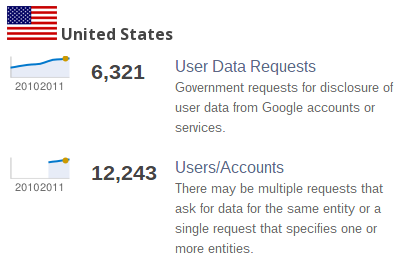 Brave New Digital World: A Writer's Closing Opinion
Brave New Digital World: A Writer's Closing Opinion
The digital world has changed the face of how the people are heard by the world, and by their governments. The Arab Spring was born following the self-immolation suicide protest of Tunisian Mohamed Bouazizi. He protested corruption, high unemployment, food inflation, lack of freedom of speech and poor living conditions; he was memorialized on Facebook and twitter. His death lead to Internet-connected protest organization across seventeen Arab and African countries, toppling four autocratic governments and getting massive changes in seven others governments, hopefully for the better.
Google's YouTube showed us the 2009 Iran Green Revolution protests that questioned the Religious police and disputed the re-election of President Mahmoud Ahmadinejad. The galvanizing video that will be remembered is of the Assassination of Iranian Neda Agha-Soltan. Her death became the "voice", as her name in Persian actually meant, for citizens to rise up. They recorded everything and posted it to YouTube in any way possible.
But in all this change for the good there is a scary back peddle in developed countries. Even those we thought were the strongest free-speech democracies are taking cues from authoritarian and autocratic regimes in denying freedom of speech and the ability to whistle-blow wrongdoing of corrupt leaders or systems. America is no innocent bystander in this. On a state by state level recordings of police misconduct and assaults have been met with retaliatory prosecutorial action. Prime examples being the Maryland state case of Anthony Graber. He was brought up on charges for wiretapping. All for posting a video to YouTube that his helmet camera recorded as a plain clothes off duty officer pulled him over at gunpoint for speeding on interstate 95 in the baltimore county area. Garber had just come home from his last tour of duty with the Maryland National Guard duty, serving in Afghanistan.
Police violence to protestors at the Occupy protests have been famously documented using YouTube from New York City to Oakland Calif. with police even singling out journalists to delete footage and photos that caught them in acts of grievous violence from cameras. But it keeps happening to such a point where protestors are now livestreaming every protests and every action they take to make sure people have it documented. Even if police raid the live streaming broadcast centers to try to shut them down. I don't even think I need to go on to the lack of protection to whistle-blowing in America now. The creation of whistle-blower sites has created tidal waves of posts.
When a country is based on freedom of speech and the right to address grievances to government those rights should be supported universally on any platform. If we have learned anything with last year's domino effect fall of several autocratic dictators, no matter how much governments try to censor information, or try to downright turn off the pipes to the internet, the signal cannot be stopped. The right to say something, no matter how vile to our ears -- unless it supports acts of unjust violence, mass panic, hate speech, bigotry, or harassment -- is the universal right of every man, woman, child, and sentient being on this planet. To try to secretly reign that in behind closed doors on the behest of corrupt politicians, campaign donating corporations, and embarrassed military and police is a sad state of affairs. In America we are supposed to be a shining example in personal freedom and in the experiment of a democracy. It is what we are suppose to support in the American experience we represent.
I'm glad to see Google believes in these ideals to a greater extent than most companies I have seen in the past. The company might have to do the bidding of some corrupt governments to do business but discloses what in the transparency reports. I for one applaud Google's civic and community responsibility in supporting and publishing so much in real time. I just wish more companies did reports like this, especially when we status update minute-to-minute with our latest inane thoughts, feelings, or regrettable emotional outbursts.
Photo Credit: Andrea Danti/Shutterstock









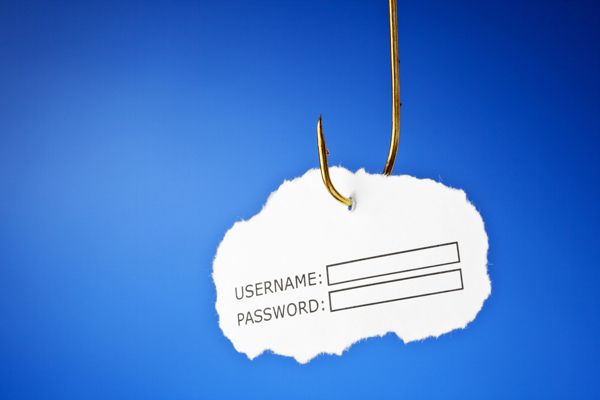
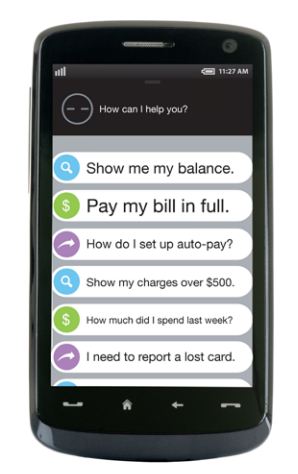

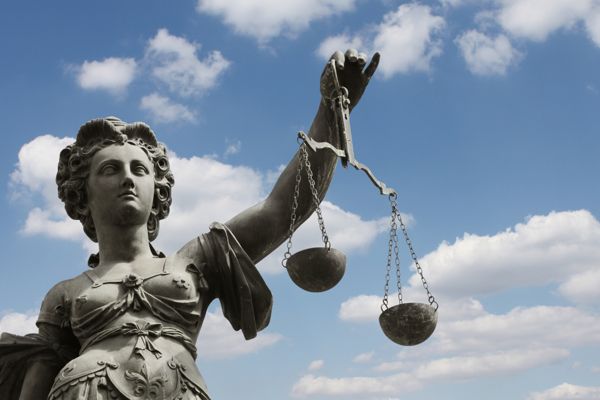

 In July of 2011, Bryan Halfpap waited for his return flight home to Maryland. A network systems security professional working for a natural resource refiner and energy provider, he had just finished up the near week-long events of the security conference DefCon, in Las Vegas.
In July of 2011, Bryan Halfpap waited for his return flight home to Maryland. A network systems security professional working for a natural resource refiner and energy provider, he had just finished up the near week-long events of the security conference DefCon, in Las Vegas. 
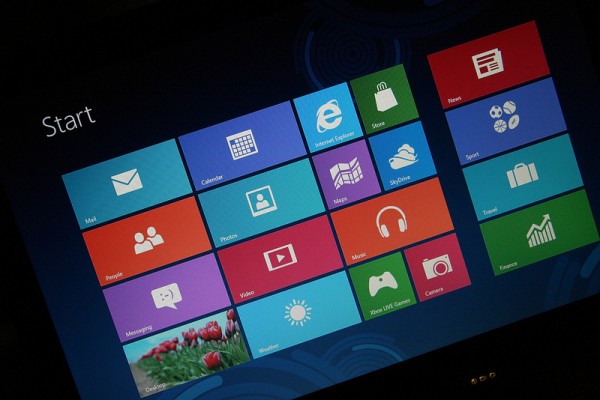

 In what the loosely-tied hacker group Anonymous calls #OpSaveTheArctic, over 1,000 email credentials and Hash checks of email passwords from five major international oil giants were released. The companies targeted included Exxon Mobil Corporation, Shell Petrochemical Corp., and BP Global; as well as the Russian based Gazprom Corporation and Rosneft Petroleum Corp.
In what the loosely-tied hacker group Anonymous calls #OpSaveTheArctic, over 1,000 email credentials and Hash checks of email passwords from five major international oil giants were released. The companies targeted included Exxon Mobil Corporation, Shell Petrochemical Corp., and BP Global; as well as the Russian based Gazprom Corporation and Rosneft Petroleum Corp. Information Technology is now a part of every day life. Every office will be networked, with data on demand. And with the push for easy access location independent records, paper files will be made redundant. But Gartner's newest IT spending forecast shows the march to digitalization slowing -- on pace to reach $3.628 trillion in 2012 and $3.786 trillion in 2013. That is only an estimated 3 percent and 4.4 percent increase compared to the the $3.523 trillion spent last year in 2011, which was 7.9 percent growth compared to 2010.
Information Technology is now a part of every day life. Every office will be networked, with data on demand. And with the push for easy access location independent records, paper files will be made redundant. But Gartner's newest IT spending forecast shows the march to digitalization slowing -- on pace to reach $3.628 trillion in 2012 and $3.786 trillion in 2013. That is only an estimated 3 percent and 4.4 percent increase compared to the the $3.523 trillion spent last year in 2011, which was 7.9 percent growth compared to 2010.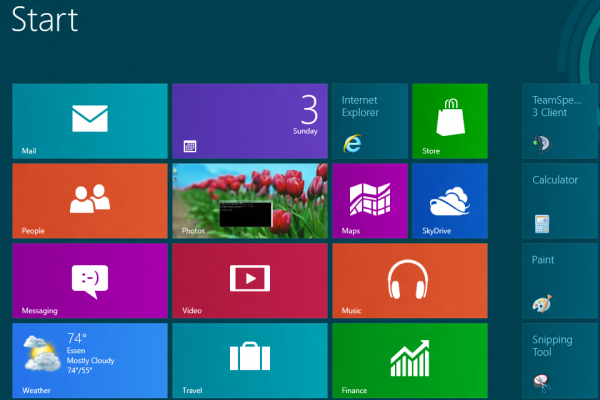
 We carry expensive gadgets on us all the time now. On a flight we listen to music on an iPhone or read on a Kindle ebook reader. We watch movies on an iPad or play Angry birds on an Android. But what do you do if you misplace that device, or worse it is stolen? What recourse do you have to get it back, if any? Who do you call, or contact for help, and what can you do to be prepared beforehand to help in getting it back yourself?
We carry expensive gadgets on us all the time now. On a flight we listen to music on an iPhone or read on a Kindle ebook reader. We watch movies on an iPad or play Angry birds on an Android. But what do you do if you misplace that device, or worse it is stolen? What recourse do you have to get it back, if any? Who do you call, or contact for help, and what can you do to be prepared beforehand to help in getting it back yourself? Fourth in a series. To commemorate iPhone's fifth-anniversary, we present several stories looking at its debut and colorful history -- so far. This one is different from the others, as it's a work of fiction, looking at a possible, alternative timeline.
Fourth in a series. To commemorate iPhone's fifth-anniversary, we present several stories looking at its debut and colorful history -- so far. This one is different from the others, as it's a work of fiction, looking at a possible, alternative timeline.
 From the halls of Adobe come the bells of impending death tolls. The master slayed its dragon. Flash is dead. The words from Adobe today in a public
From the halls of Adobe come the bells of impending death tolls. The master slayed its dragon. Flash is dead. The words from Adobe today in a public 
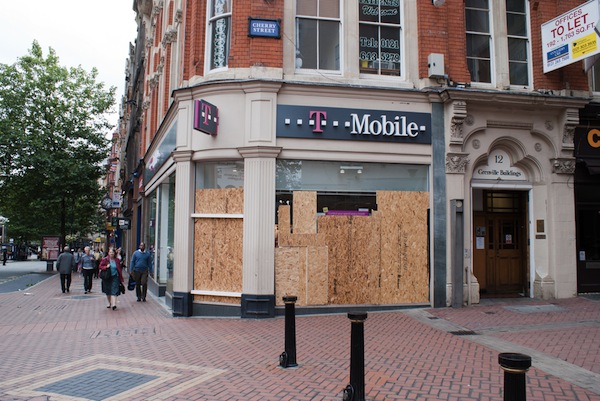


 The
The 
 Mr. Googler, Papers Please?
Mr. Googler, Papers Please? Brave New Digital World: A Writer's Closing Opinion
Brave New Digital World: A Writer's Closing Opinion Troubling news is coming out of East Africa this week. International media site
Troubling news is coming out of East Africa this week. International media site  It is a dark day for the employees of the world's most-recognized phone maker in Espoo, Finland. Stephen Elop, Nokia CEO, announced today that 10,000 positions will be made redundant by the end of 2013. In what is being called part of a strategy to rescale Nokia's operations after terrible losses over the past four quarters, offices in Finland, Germany and Canada will close. Also executives Niklas Savander, Mary McDowell, and Jerri DeVard will step down.
It is a dark day for the employees of the world's most-recognized phone maker in Espoo, Finland. Stephen Elop, Nokia CEO, announced today that 10,000 positions will be made redundant by the end of 2013. In what is being called part of a strategy to rescale Nokia's operations after terrible losses over the past four quarters, offices in Finland, Germany and Canada will close. Also executives Niklas Savander, Mary McDowell, and Jerri DeVard will step down. 



 At the the Electronic Entertainment Expo 2012 Sony Press Conference, Sony announced a big push for their mobile phone gaming platform for Android powered mobile devices. Once called Sony Playstation Suite, Sony is first changing the name to Playstation Mobile. The whole idea is about making it possible to allow access to PlayStation Classic games and other PlayStation titles on "PlayStation Certified" devices. This move expands the selection of access to Playstation games for mobile beyond the current Sony made Xperia phone and tablet line of Android devices.
At the the Electronic Entertainment Expo 2012 Sony Press Conference, Sony announced a big push for their mobile phone gaming platform for Android powered mobile devices. Once called Sony Playstation Suite, Sony is first changing the name to Playstation Mobile. The whole idea is about making it possible to allow access to PlayStation Classic games and other PlayStation titles on "PlayStation Certified" devices. This move expands the selection of access to Playstation games for mobile beyond the current Sony made Xperia phone and tablet line of Android devices.










